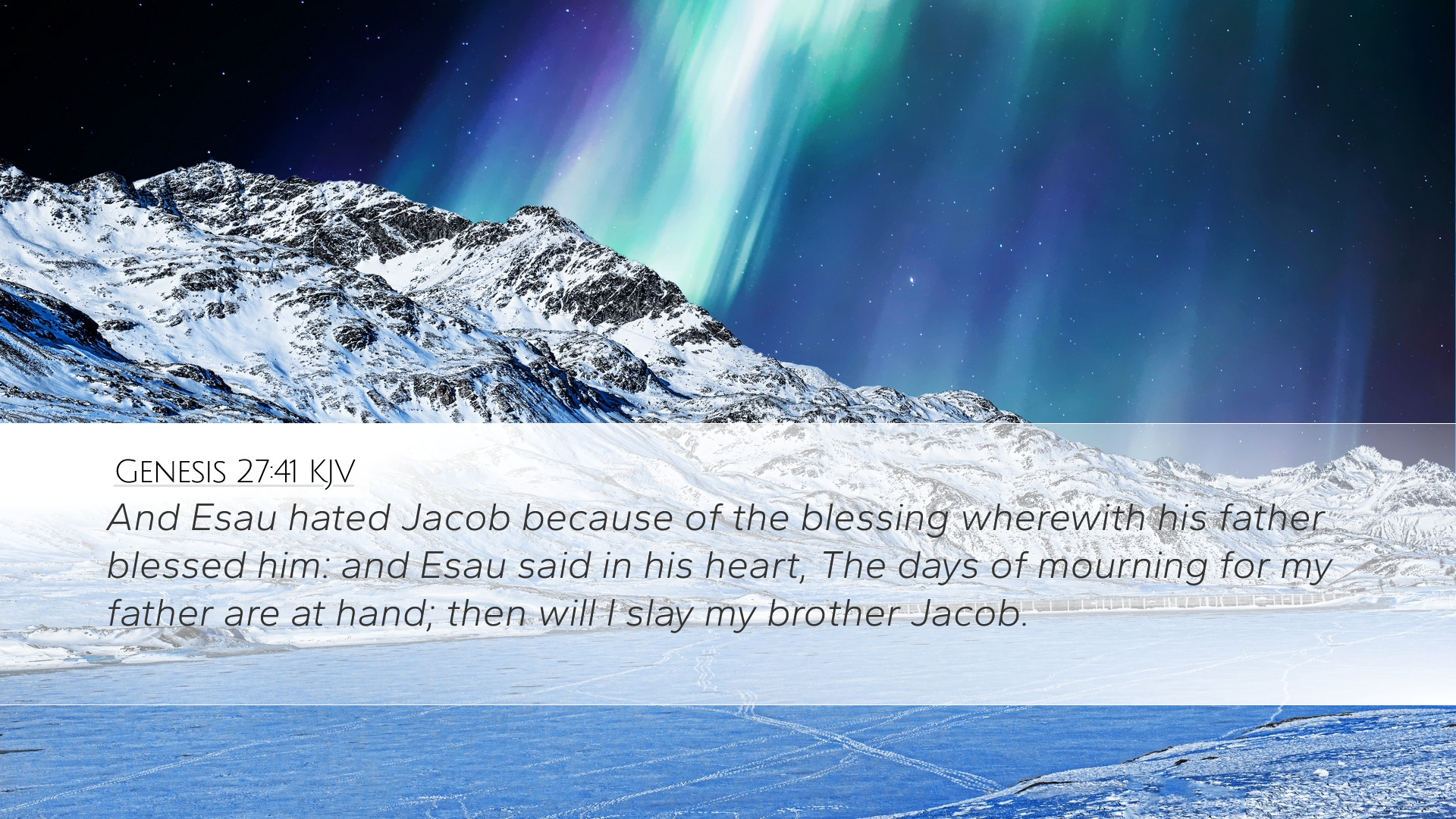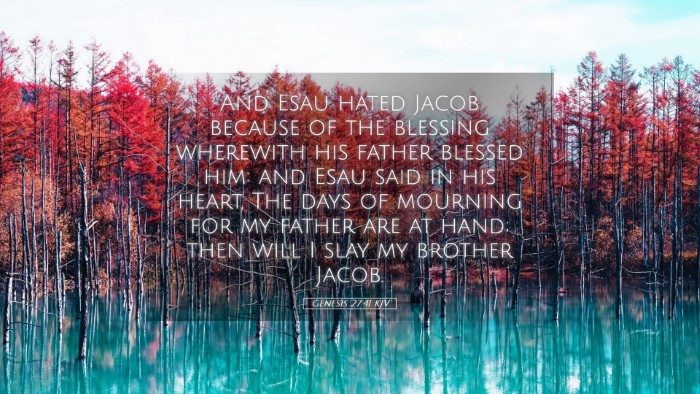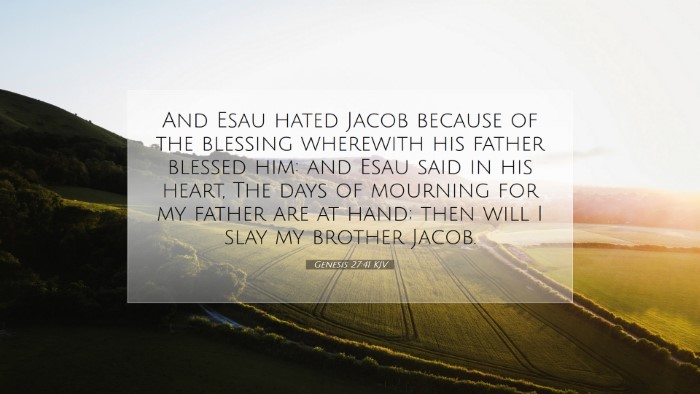Commentary on Genesis 27:41
Text of Genesis 27:41 (KJV): "And Esau hated Jacob because of the blessing wherewith his father blessed him: and Esau said in his heart, The days of mourning for my father are at hand; then will I slay my brother Jacob."
Introduction
Genesis 27:41 is a pivotal verse that encapsulates the emotional turmoil and fraternal conflict resulting from the rivalry between Jacob and Esau. The verse records Esau's bitterness following the deceitful acquisition of his father Isaac's blessing by Jacob.
Contextual Analysis
Historical Context: The events leading up to this verse trace back to the covenant promises made to Abraham and Isaac. Jacob and Esau are the grandsons of Abraham, and their conflict symbolizes more than familial discord; it represents the broader theological themes of election, grace, and divine promise.
- Esau's Character: Esau, the firstborn, is described in Scripture as a man of the field, a skilled hunter, yet he is depicted as being careless regarding his birthright, having sold it to Jacob for a meal (Genesis 25:29-34).
- Jacob's Deception: The acts of deception employed by Jacob, encouraged by his mother Rebekah, reveal deeper issues of trust, family dynamics, and the lengths individuals might go to fulfill perceived divine promises.
Analysis of the Verse
The phrase "And Esau hated Jacob" underlines the emotional intensity of the situation. Esau's response is a powerful reflection of human emotions in the face of perceived injustice.
- Hatred: Esau's hatred is not just a fleeting emotion; it signifies a profound disappointment and betrayal. Matthew Henry reminds us that this hatred grew from a deep sense of loss—not just of the blessing, but of his unique position as the firstborn.
- The Blessing: The importance of the paternal blessing in ancient culture cannot be overstated. It embodied not only material inheritance but also spiritual leadership within the family, which Jacob has now taken from Esau.
Theological Implications
This verse holds significant theological weight as it explores themes of destiny, divine choice, and human agency. The deep animosity felt by Esau serves as a backdrop for understanding God's sovereign plan in choosing Jacob to carry the covenantal line.
- Divine Election: Esau’s rejection and Jacob’s elevation highlight the biblical principle of election, where God chooses whom He wills for His purposes (Romans 9:10-13).
- Fulfillment of Prophecy: Rebekah was told prior to the twins' birth that "the elder shall serve the younger" (Genesis 25:23), which sets the stage for this godly clash of wills and circumstances.
Character of Esau
Emotional Reaction: Esau's declaration in his heart reveals the internal conflict he faces. Adam Clarke notes that words and thoughts can be destructive, showing how resentment can fester and lead to harmful actions.
- Vengeance: Esau's planning of revenge indicates the dangerous human tendency toward retribution. This marks a significant moral and spiritual failing, presenting a contrast to what is expected of God's people (Romans 12:19).
- Bridging the Gap: While Esau’s heart harbors hatred, it would be critical for Esau to navigate this dark energy toward reconciliation, reflecting God’s grace.
Jacob's Response and Implication
Fear and Flight: Jacob learns of Esau's intentions and his subsequent fear leads him to flee to Haran. Matthew Henry emphasizes Jacob’s realization of the consequences of his deception—creating an environment of distrust and fear.
- Growth Through Trial: Jacob’s journey serves as a pivotal theological narrative about growing through struggles; he must confront not only his past actions but also the promises made to him.
- The Path of Reconciliation: Jacob’s eventual confrontation with Esau later in life shows the potential for reconciliation through humility and acknowledgment of wrongs done.
Lessons for Today
For pastors, students, and theologians, this text serves as a profound reminder of the complexity of human relationships and the overarching sovereignty of God in the midst of conflict.
- Handling Conflict: It encourages reflection on how individuals might respond to conflict and the importance of seeking resolution rather than revenge.
- Grace in Family Dynamics: The themes of deception and conflict in family settings call for a pastoral approach filled with grace, seeking healing within broken relationships.
Conclusion
Genesis 27:41 is a reflective verse that invites readers into the complexities of sibling rivalry and the emotional landscape impacted by family decisions, highlighting the grace and sovereignty of God amidst human shortcomings and strife. This commentary has sought to unpack the rich theological, emotional, and practical dimensions of this significant biblical passage.


